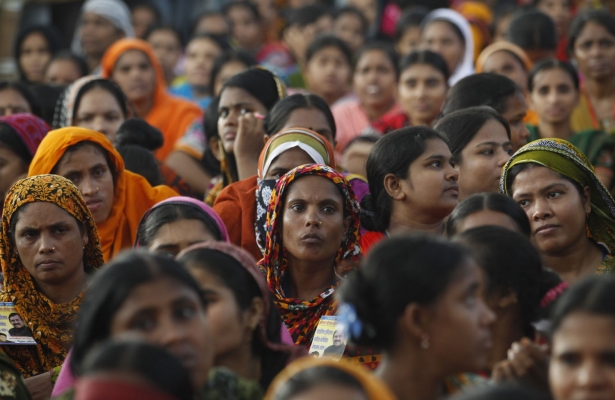
1 October 2014, The Nation & Foreign Policy in Focus
Excerpt:
In Bangladesh, one of the most densely populated countries on the planet, more than 157 million people live on about 57,000 square miles of land. That’s a population greater than Russia’s living in a country smaller than the state of Illinois. We heard over and over again that Bangladesh’s prime economic resource is its abundance of people—and indeed, alongside agriculture and garment manufacturing, “labor exporting” is a pillar of the economy. In 2013, more than $13 billion was sent home from Bangladeshi migrants working overseas.
The national government officials we met with seemed at once detached from the suffering of migrant workers yet proud of the quality of their “exports.” On the local level, where officials and NGOs seem to work collaboratively to educate Bangladeshis about safe migration, we saw a more complicated picture. Labor migration is a rare viable option to support a family in a poor country like Bangladesh, but these small local partnerships are not reaching enough of the population. Because of these gaps, potential migrants might still take risks in desperation, like working with dalals (middlemen) who cheat them with few consequences.
But the dalals are not the only problem. The Bangladeshi government has yet to effectively regulate even the “registered” recruiting agencies, which charge enormous and erratic fees. And even as they are quick to point to unscrupulous middlemen as rogue actors, these agencies often contract dalals to find them potential migrants. Bangladeshi recruiters told us that they have to bid for the contracts from the receiving countries, which hold all of the bargaining power, and the costs are passed on to the migrant. Migrants sell property and borrow huge sums in order to pay the fees to migrate—only to have no guarantee that they will actually be paid fairly, if at all, when they arrive.
Advocates in Bangladesh are pushing for lower, fixed fees based on destination country, but acknowledge that the best outcome for migrant workers would be a “zero fee” system implemented on a global level.
In the Unites States, where migrant and domestic workers are excluded from many of the federal protections extended to other workers, labor rights activists are also pushing for such a system.